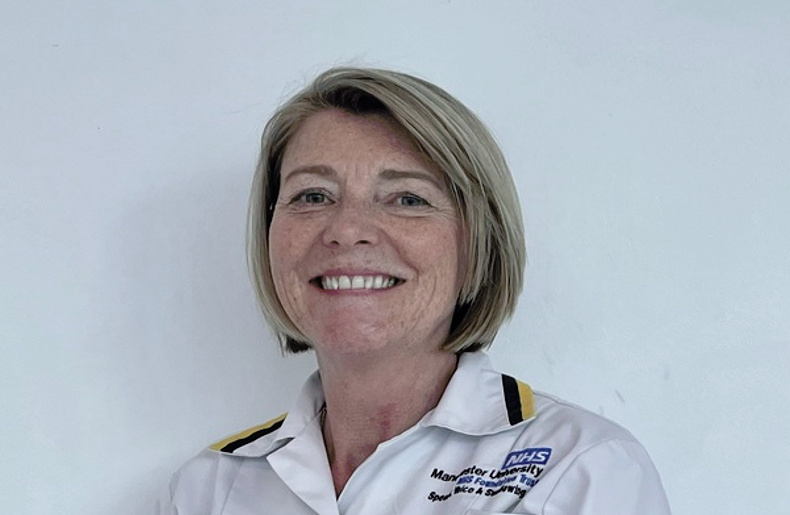James Lind Alliance PSP for Intensive Care Research
Shape the next decade of intensive care research.
This autumn, more than 500 patients, family members, and healthcare professionals shared their experiences and insights with us.
We’re now carefully refining that feedback into a set of clear, meaningful research questions that span the entire intensive care journey, from admission and treatment through to longer‑term recovery.
With support from the NIHR, this project is empowering the intensive care community to shape the research agenda and ensure that future studies reflect the issues that matter most to those directly affected.
What's next?
Now we are asking for your help again - this time to rank the final list of priorities.
Your voice will guide where research efforts should focus in the years ahead - take part below
Download our JLA PSP poster to share with your colleagues or display in your unit.
Meet the Team
The Intensive Care Society has brought together a team of clinical leaders and public representatives to guide the ICS JLA Priority Setting Partnership. Professor Louise Rose (King’s College London), Professor Charlotte Summers (University of Cambridge), and Professor Sarah Wallace (Manchester University NHS Foundation Trust) are leading the project, with representation from both the Society and NIHR.
We are also working in collaboration with wider organisations and networks across the UK to ensure the partnership reflects the diversity and complexity of intensive care. Supporting the project are JLA Advisor, Maryrose Tarpey and the JLA Information Specialist Toto Gronlund, who will bring their expertise in facilitating inclusive, transparent priority-setting processes.
A dedicated steering group — made up of equal numbers of patient/family representatives and healthcare professionals — oversees the work. This group reflects a broad range of experience, including variations in geography, clinical background, lived experience, and professional roles, ensuring a fair and inclusive approach to identifying what matters most in intensive care research.
About the James Lind Alliance
What is the James Lind Alliance?
The James Lind Alliance (JLA) is a non-profit making initiative bringing patients, carers and clinicians together in JLA Priority Setting Partnerships (PSPs). JLA PSPs identify and prioritise unanswered questions that they agree are the most important, so that researchers and funders are aware of the issues that matter most to the people who need to use the research in their everyday lives.
The Intensive Care JLA PSP will be conducted in accordance with JLA guidelines. For further details, please refer to the JLA Guidebook.
Top 10 Research Priorities (from 2014)
These priorities were developed over a decade ago through a national James Lind Alliance priority setting process involving patients, family members, and healthcare staff. The findings were published in the Journal of the Intensive Care Society.
Now, with the landscape of critical care changing significantly, we are working to refresh these priorities to ensure they reflect today’s challenges, innovations, and hopes.
Top 3
-
How can patients who may benefit from intensive care be identified early and admitted to the ICU at the right time?
-
How can patients and their families be best supported as they start living at home again (e.g. health and social care services, ICU support groups, long term follow-up)?
-
What is the best way to identify patients with, or at risk of delirium or agitation – how should the immediate and long term effects of delirium or agitation be monitored and managed?
Other high priorities identified (in no order of priority):
- What is the best way to prevent, diagnose and treat hospital acquired infection (e.g. ventilator associated pneumonia, blood stream infections related to the use of invasive lines)?
- When should physical rehabilitation start and what rehabilitation methods during and after critical illness achieve the best outcomes for patients?
- How can we enhance patient comfort during Intensive Care (i.e. minimise pain, discomfort, agitation and anxiety) and does this improve patient outcome?
- How can the physical consequences of critical illness (such as muscle wasting, weakness, nerve damage) be prevented and what is the best way to support recovery from these after intensive care?
- What psychological support should be provided for patients in Intensive Care?
- How can we predict who will benefit from intensive care before admission and during treatment in the ICU?
- What is the best way of ensuring new knowledge and the latest defined standards are introduced into clinical practice in a timely and effective way?
- How can we use the experiences of patients and families to improve intensive care?
- What is the best way of preventing damage to the lungs of patients receiving respiratory support (ventilation)?
Get in Touch
Whether you're a former patient, a family member, or a healthcare professional work in critical care - we’d love to hear from you.
Intensive Care Society | Supported by NIHR




